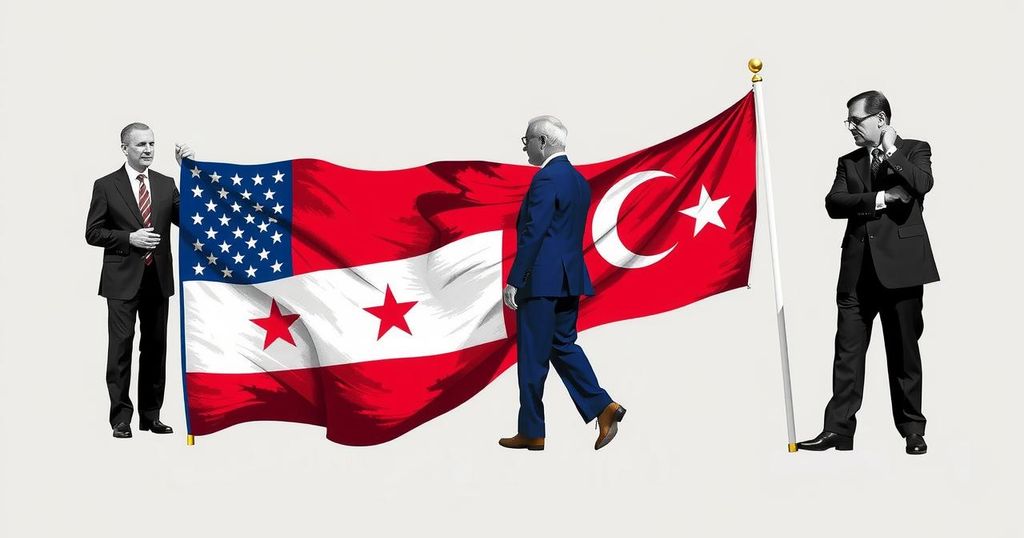Officials from the US, Turkey, and Arab countries convened in Jordan to advocate for a peaceful transition in Syria, expressing concerns over regional stability and the need for an inclusive government. US Secretary of State Antony Blinken confirmed direct contact with the rebel group HTS, emphasizing the imperative of avoiding chaos similar to Libya’s post-Gaddafi landscape, despite skepticism regarding HTS’s intentions. Notably, Syria’s regime allies, Iran and Russia, were absent from the talks, highlighting ongoing geopolitical complexities.
Officials from the United States, Turkey, and several Arab nations have collectively endorsed a peaceful process for Syria following a conference held in Aqaba, Jordan. Jordanian Foreign Minister Ayman Safadi articulated regional stakeholders’ unanimous desire to prevent Syria from spiraling into chaos. US Secretary of State Antony Blinken confirmed direct engagements with the rebel group Hayat Tahrir al-Sham (HTS), pivotal in the movement against President Bashar al-Assad’s regime. A joint statement underscored the necessity for an inclusive Syrian government that acknowledges minority rights and denies sanctuary to terrorist organizations.
Discussions highlighted the critical need for governance in Syria that embodies representation for all citizens, amidst concerns voiced by Iraqi Foreign Minister Fuad Hussein about Syria’s stability reflecting regional dynamics. The minister stressed the collective preference of neighboring states to avert a situation akin to Libya’s aftermath following Colonel Gaddafi’s ousting. Turkish Foreign Minister Hakan Fidan emphasized the importance of retaining existing institutions in Syria while navigating reformative actions, stating, “Never allow terrorism to take advantage of the transition period. And we have to coordinate our efforts and learn from the mistakes of the past.”
Despite HTS’s expression of a commitment to inclusive governance, skepticism persists due to the group’s history of violent extremism. Secretary Blinken reiterated that the US maintains constructive communication with HTS, particularly regarding American journalist Austin Tice who remains missing, although the group’s terrorist designation remains unchanged. Notably, Syrian representation was absent from these discussions, as well as the participation of Iran and Russia—key players that historically bolstered Assad’s regime. This absence underscores the complex orchestration of external influences impacting Syria’s political future.
The evolving political landscape within Syria requires cohesive support both internally and externally to ensure a sustainable return to stability and to fulfill the aspirations of its populace for freedom and governance.
The dialogue among US, Turkish, and Arab officials convening in Jordan reflects ongoing concerns regarding Syria’s future after years of civil conflict and foreign intervention. With a history marked by the rise of multiple factions, including extremist groups, the quest for a political transition that fosters unity and peace remains paramount. The meeting signifies a renewed commitment to address the sectarian divisions that have fragmented the country and to establish a governing framework that upholds inclusive representation, devoid of terrorist affiliations.
In summary, the collaborative efforts of the United States, Turkey, and Arab nations underscore a shared commitment to facilitating a peaceful transition in Syria. By promoting a government that respects minority rights and incorporates various societal factions, these officials aim to prevent further chaos and instability. However, the absence of crucial representatives from Syria and supportive players like Iran and Russia poses significant challenges to achieving an enduring resolution. Ultimately, sustained external and internal cohesion is vital for the Syrian populace to realize their aspirations for freedom and governance.
Original Source: www.bbc.com






